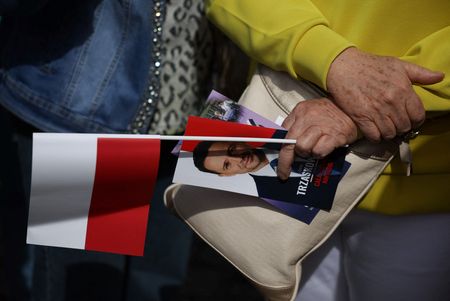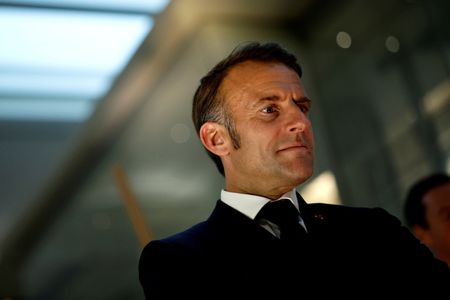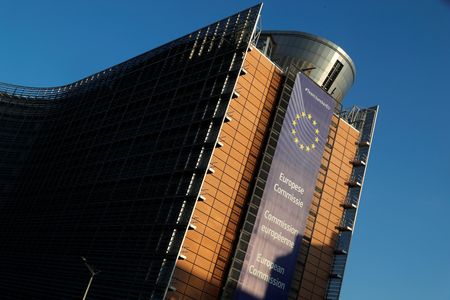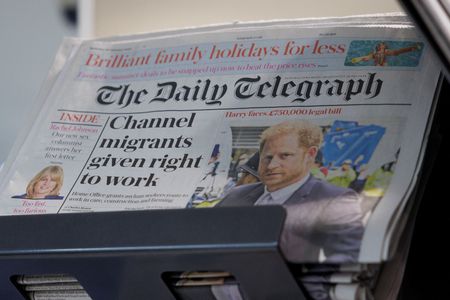WARSAW (Reuters) – The frontrunner in Poland’s presidential election faced questions over a series of online advertisements criticising his rivals on Friday, as he rejected claims that his campaign was behind the films or had subverted spending rules.
What started on Wednesday as a furore over possible foreign influence in the campaign has since morphed into a domestically focussed controversy centered around Warsaw Mayor Rafal Trzaskowski of the liberal Civic Coalition (KO) just days before Sunday’s vote.
Poland’s national research institute dealing with cybersecurity, NASK, said on Wednesday it had uncovered what could be an attempt to interfere in its presidential election campaign using advertisements on Facebook that may have been financed from abroad, without naming a country.
However, Facebook parent Meta rejected the claims, saying the advertisements, which criticised nationalist and far-right candidates, originated in Poland.
In the statement on Wednesday NASK also said that “the actions were ostensibly intended to support one of the candidates and discredit others.”
“Its purpose may have been to harm the candidate allegedly supported by such ads and to destabilize the situation before the presidential elections.”
Subsequently news website WP.pl reported that a former assistant to a Civic Coalition lawmaker had helped find people to appear in the advertisements, whose ultimate source of funding remained opaque.
This led the nationalist Law and Justice party, whose candidate, Karol Nawrocki, was one of those targeted in the advertisements, to accuse the Trzaskowski campaign of subverting campaign spending rules and to lodge a complaint with prosecutors.
“I am of course outraged by this, but not surprised,” Nawrocki said on Friday.
“This scandal is a symbolic cherry on the cake in (prime minister) Donald Tusk’s state, which wants to take over the decisions of Polish citizens and uses various institutions to not give Poles a free choice.”
Under Polish law all election advertising spending must be declared by the candidate’s team and labelled as such.
On Thursday, the presidential contender from the far-right Confederation party, Slawomir Mentzen, who was also targeted by the ads, wrote on X that sympathetic media and NASK were painting the controversy as “a job aimed at Rafal Trzaskowski.”
“I don’t know how one can treat people like complete idiots.”
On Friday, Polish Parliament Speaker Szymon Holownia, who is standing for president for the centre-right Poland 2050 party, itself a part of the governing coalition, said Trzaskowski had “until the end of the day to explain himself”.
Asked about Holownia’s criticism, Trzaskowski said that he was focussing on the campaign organised by his staff.
“Of course, everything is in accordance with the law,” he said. His campaign team had already published a letter to Meta in which it said it had no connection to the advertisements.
NASK declined to share or identify the ads in question, citing operational and information security considerations and ongoing proceedings by Poland’s Internal Security Agency.
A META spokesperson shared examples of the videos flagged by NASK with Reuters. A video almost identical to one of them was posted in late April on X social media accounts of several high ranking KO members, including members of Trzaskowski’s campaign team, Sports Minister Slawomir Nitras and deputy Defence Minister Cezary Tomczyk.
The first round of the presidential election is on Sunday, with a runoff vote on June 1 if no candidate secures more than 50% of the vote.
(Reporting by Alan Charlish, Karol Badohal, Pawel Florkiewicz; editing by Philippa Fletcher, William Maclean)












